Does your bedding contain this hidden sleep thief? What it is and how to avoid it, according to sleep experts
How to avoid this common cause of overheating

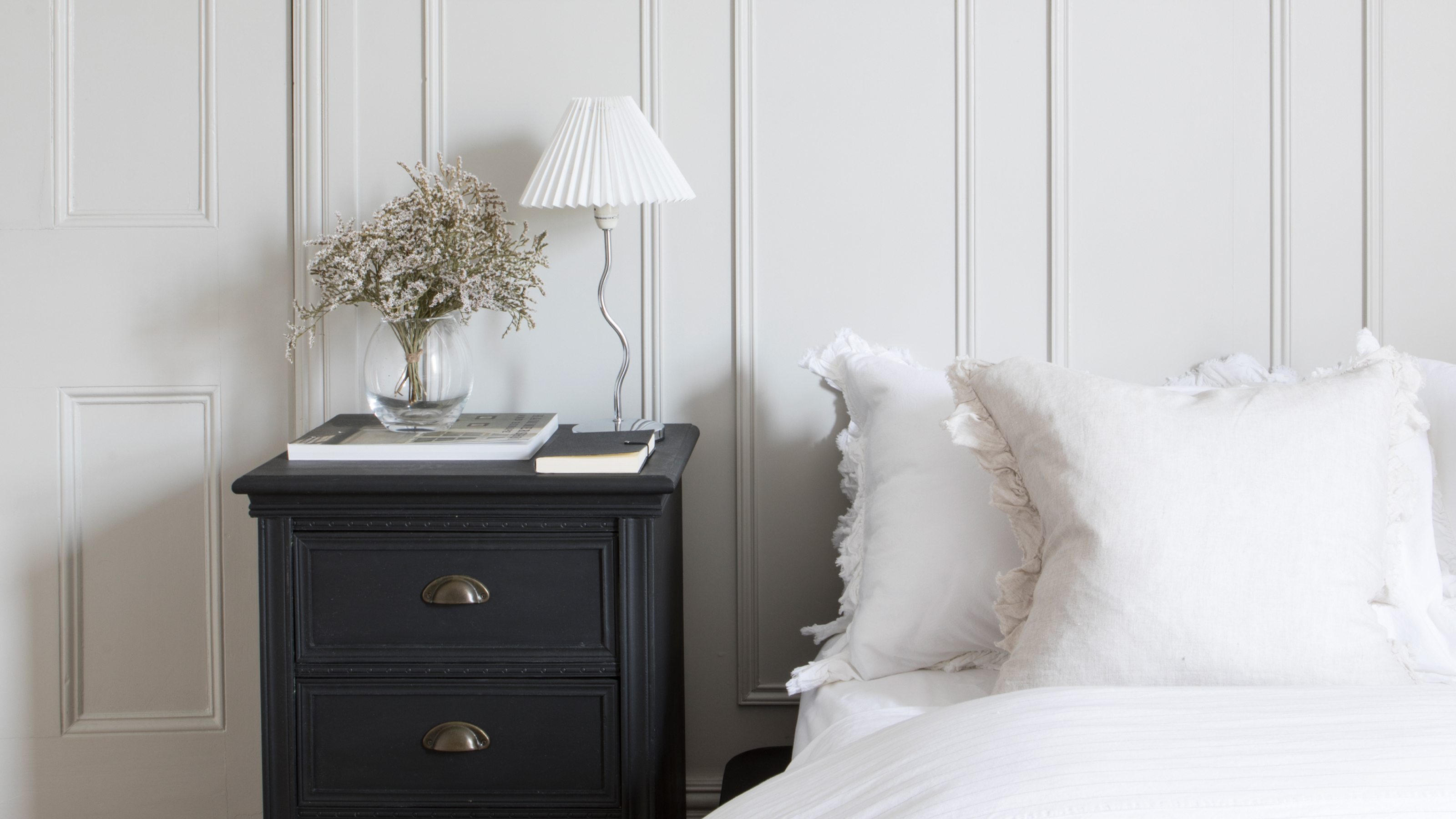
When a heatwave descends, most of us are more likely to get a bad night's sleep as we toss and turn attempting to avoid overheating.
However, there is one hidden 'sleep thief' that sleep experts say could be lurking in our bedding and causing us to get all hot and bothered at night, whether there's a heatwave occurring or not.
Luckily, there's also an easy way to identify the problem, and some simple bedding swaps that sleep experts say can solve the issue and help us to stay cool in bed.

When it comes to how to sleep better on warm nights, one surefire solution is to switch to a summer duvet. However, something we might not consider is the impact that the materials used in our bedding can have on our sleep climate.
'Choosing the right type of bedding will either keep you cool or cause you to become hot and sweaty,' explains sleep expert and co-founder of Divan Beds, Adeel Ul-Haq, and there's one material that can lead to more hot and sweaty nights than any other.
As Adeel explains, 'fabrics like polyester trap heat and moisture against your skin, making it next to impossible to sleep when it's warm.'
Sleep expert and managing director of Woolroom, Chris Tattersall, agrees, saying, 'try to avoid bedding made from polyester, nylon or synthetic materials that will trap heat and hold moisture in during a heatwave, or indeed all year round if you're prone to overheating at night.'
Sign up to our newsletter for style inspiration, real homes, project and garden advice and shopping know-how
'Moisture from perspiration has to go somewhere, and these materials can leave you feeling uncomfortable and your bedding feeling damp and heavy.'
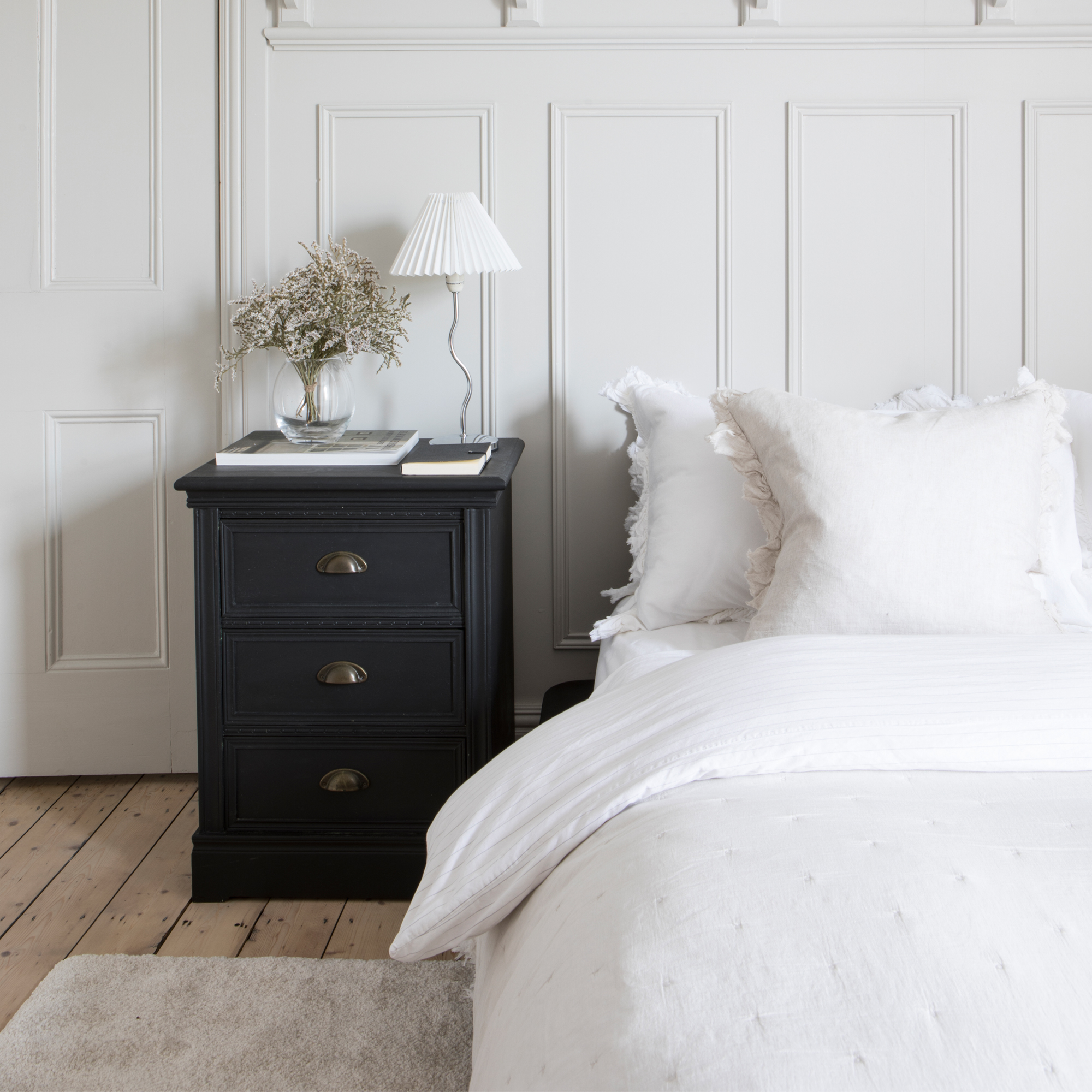
The easiest way to find out if your bedding contains polyester is to check the care label on your duvet, pillows, sheets, pillowcases, or duvet cover. If you see polyester, nylon, or polycotton (a mixture of synthetic fibres and cotton) mentioned, then your bedding likely won't be as breathable as it could be.
If you want to avoid overheating, then the solution is to swap to bedding made from natural materials, such as cotton, linen, wool, bamboo, or – if you really want to push the boat out – silk.
As Chris explains, 'if you swap from a synthetic duvet to a lightweight duvet made from natural materials, you’ll be amazed by the difference in your sleep quality on hot summer nights.'
'Wool’s natural properties make it an excellent choice for temperature regulation, as the breathability of wool allows air to circulate, preventing heat build-up and promoting a cooler sleep environment,' says Chris.
'By contrast, polyester and feather and down fillings trap heat and moisture, and are therefore better suited for colder, winter months.'
Shop natural-fill duvets
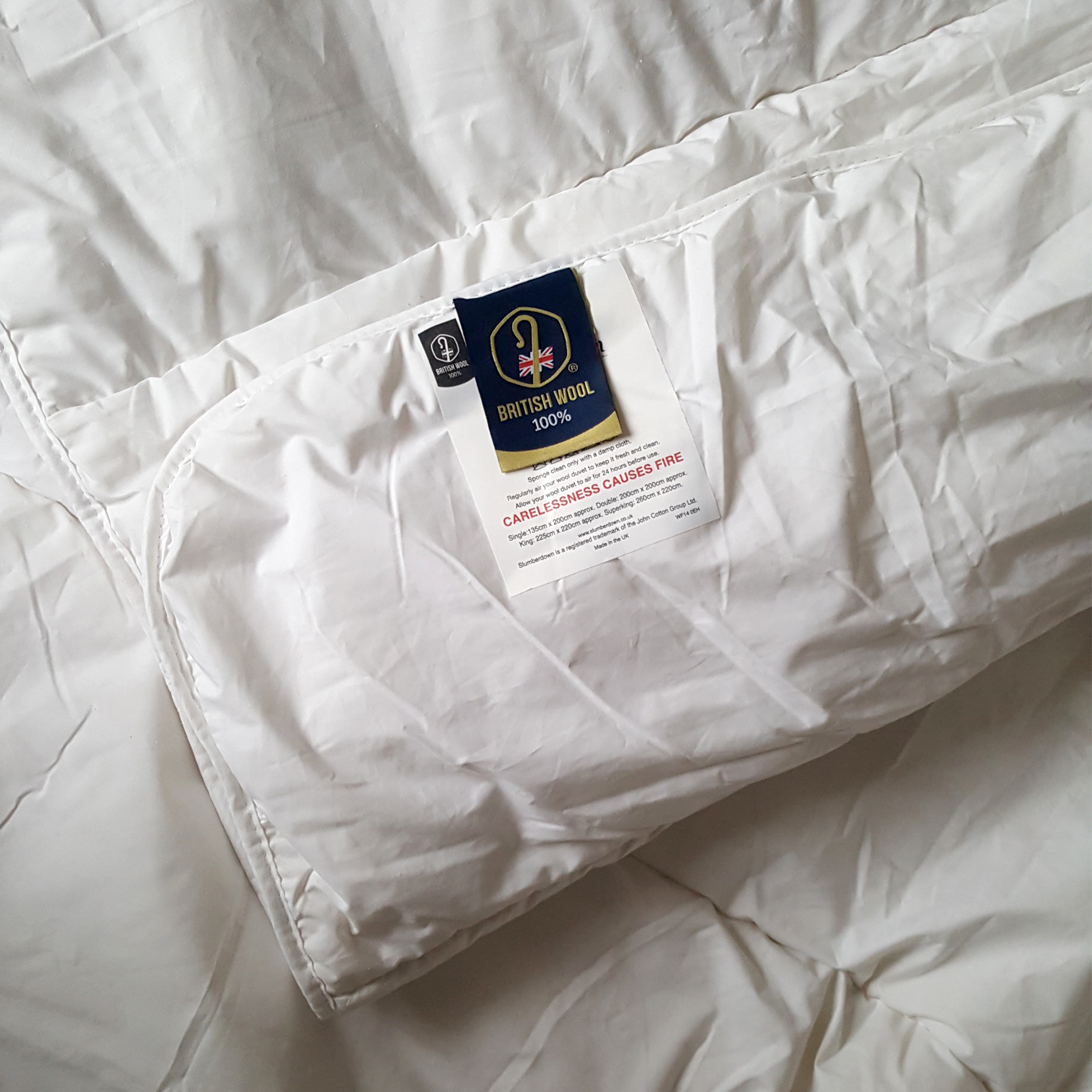
The downside of a wool duvet is that they're generally more expensive than a polyester microfibre or hollowfibre duvet. However, this Slumberdown duvet is a budget-friendly option that does a great job at temperature regulation.
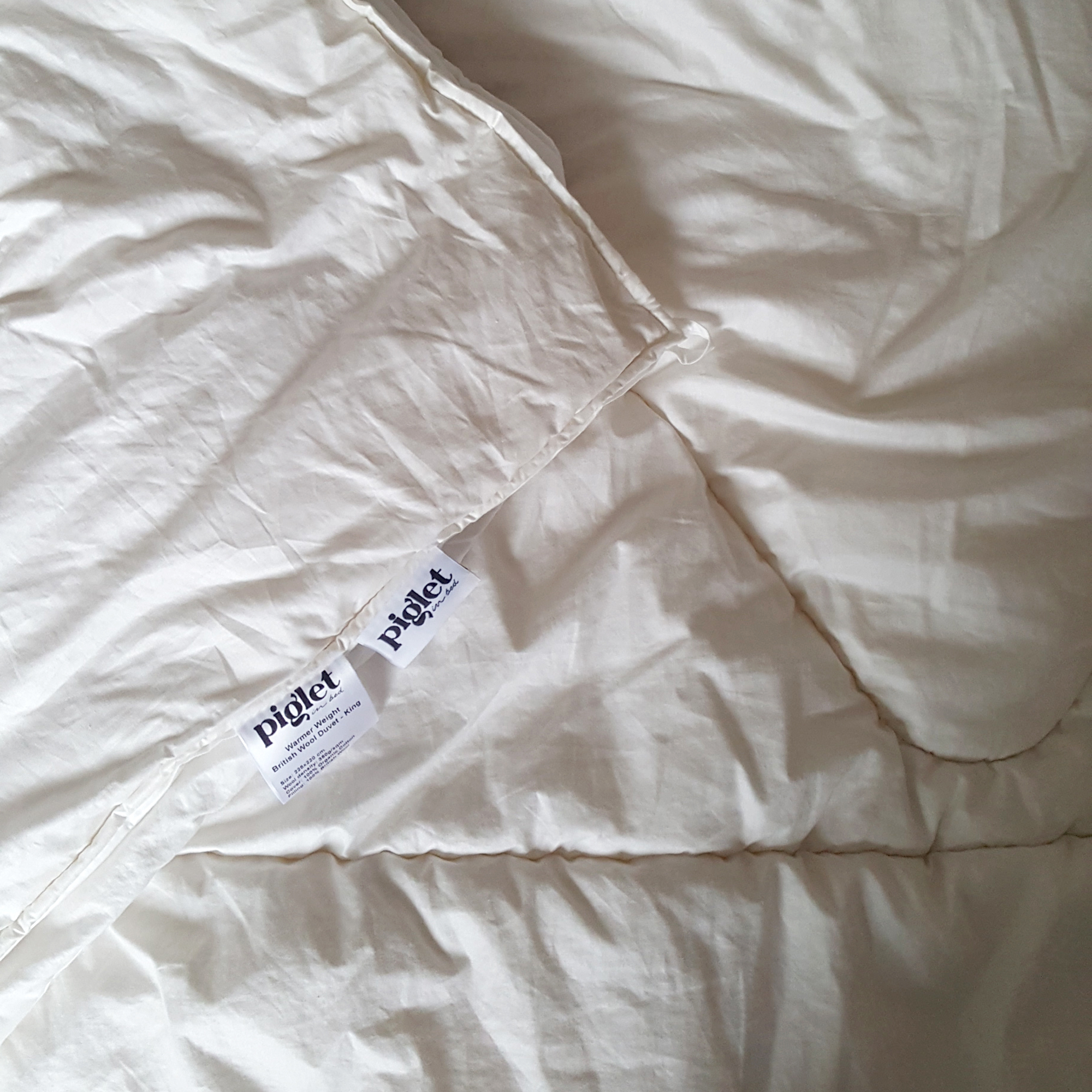
Spend a little more and you'll get a more premium product. This Piglet in Bed wool duvet is a good mid-range option, made from 100% ethically sourced British wool and with OEKO-TEX® Standard 100 certification.
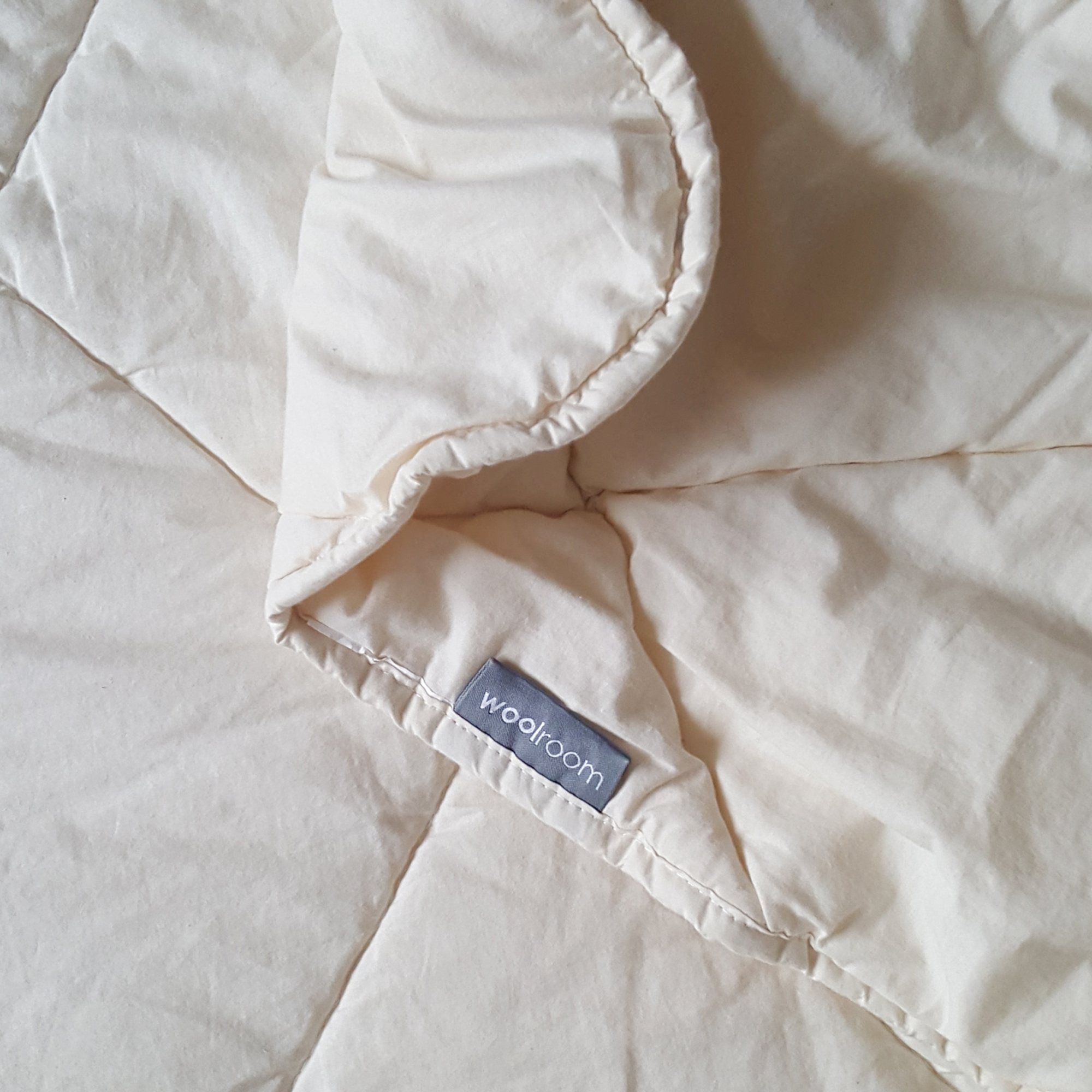
If your budget will stretch, then Woolroom's Deluxe Wool Duvet is my top recommendation. It's one of the few (if not the only) wool duvets which can be washed, and it has a 30-night sleep trial so you can test out wool's benefits for yourself before you commit.
It's also important to consider what you put on and under your duvet. Chris advises that 'cotton or linen bedlinen is a great option to pair with a lightweight duvet.'
'These materials are also breathable and moisture-wicking, with cotton able to absorb up to 10% of its weight in moisture. The natural fibres ‘breathe’ by absorbing the moisture away from your body and releasing it into the air, meaning you stay dry and comfortable all night long.'
'To stay cool when sleeping, stick to natural fibres like cotton or linen,' agrees Adeel. 'These materials allow air to circulate and help wick the moisture away so your body can stay cool even when it's been warm outside.'
So if you’re sleeping on or under a polyester or even a polycotton bed sheet or duvet cover, now is the time to swap it for a cotton or linen option instead. That way our body stands a better chance of maintaining a comfortable temperature through the night, even when it's hot.
Shop natural fibre bed linen
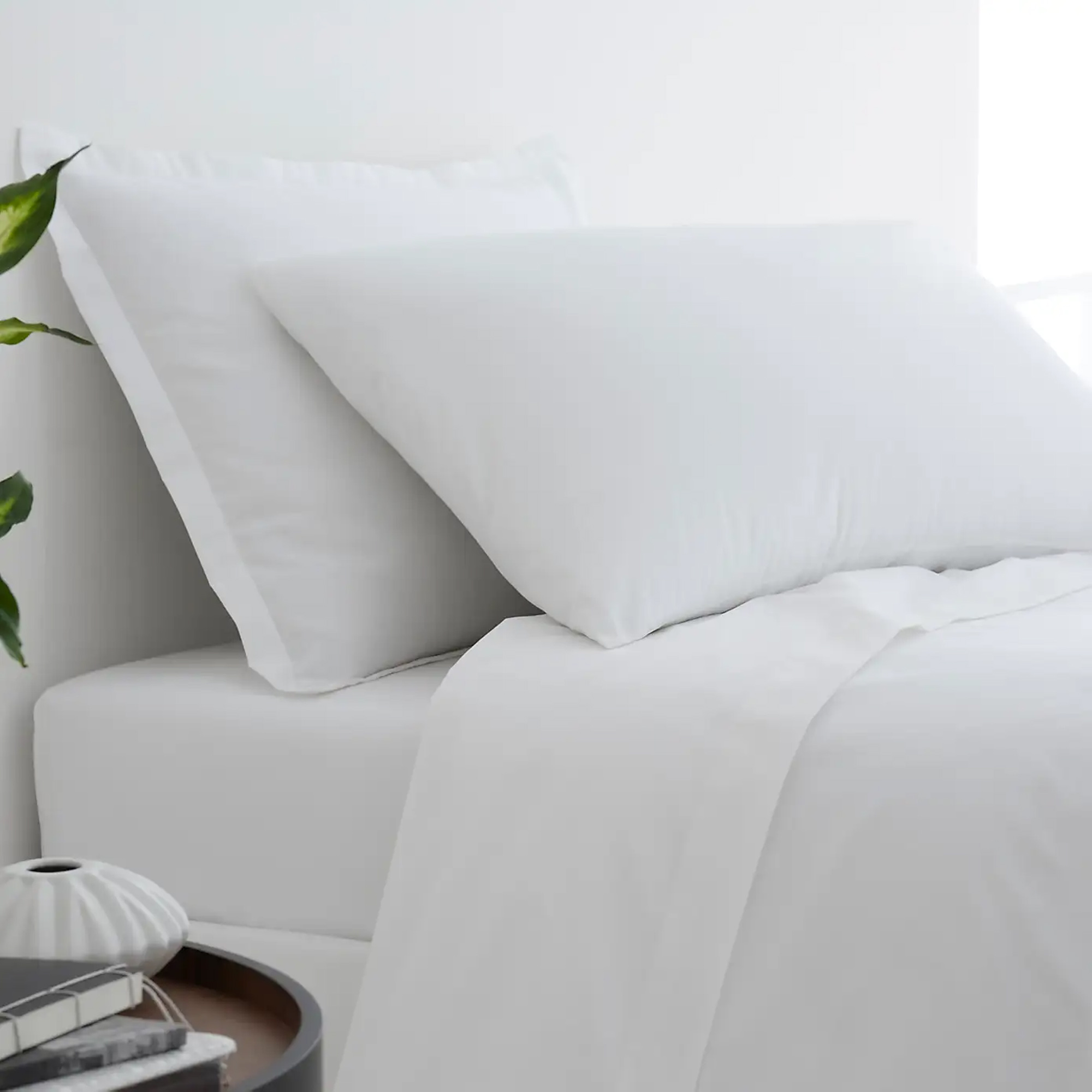
While polyester and polycotton bed linen is so popular partly because of its affordability, opting for natural materials instead doesn't have to break the bank. These 100% cotton sheets are a great price, and Dunelm's matching duvet sets are equally budget-friendly. Plus, they're available in over 40 colour options.
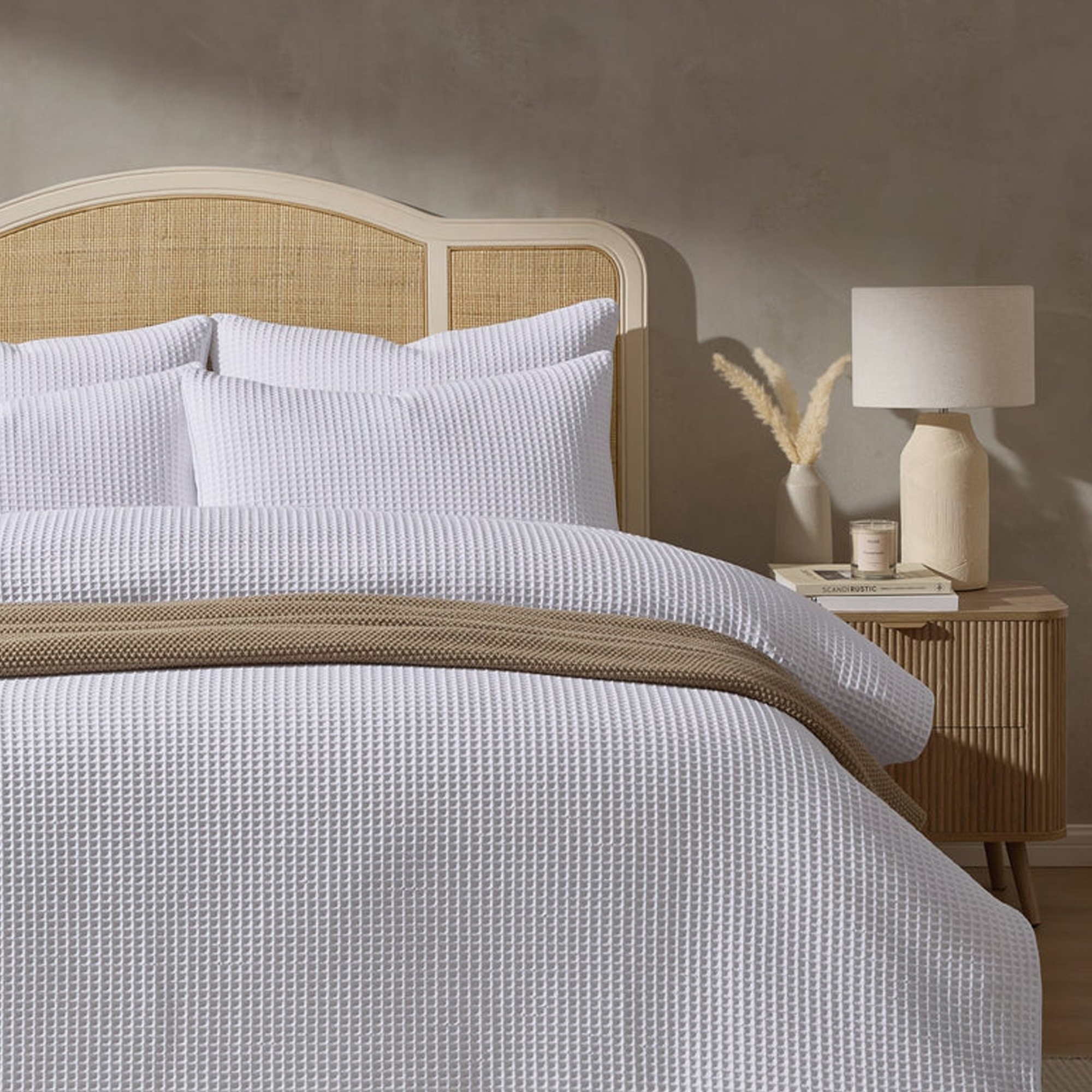
If you want to splash out a little more, DUSK's 200-threadcount cotton percale Portofino Waffle bedding collection gets rave reviews for good reason. The fabric is lightweight, breathable, and its waffle texture gives the otherwise simple cotton bedding some extra wow-factor on the bed.
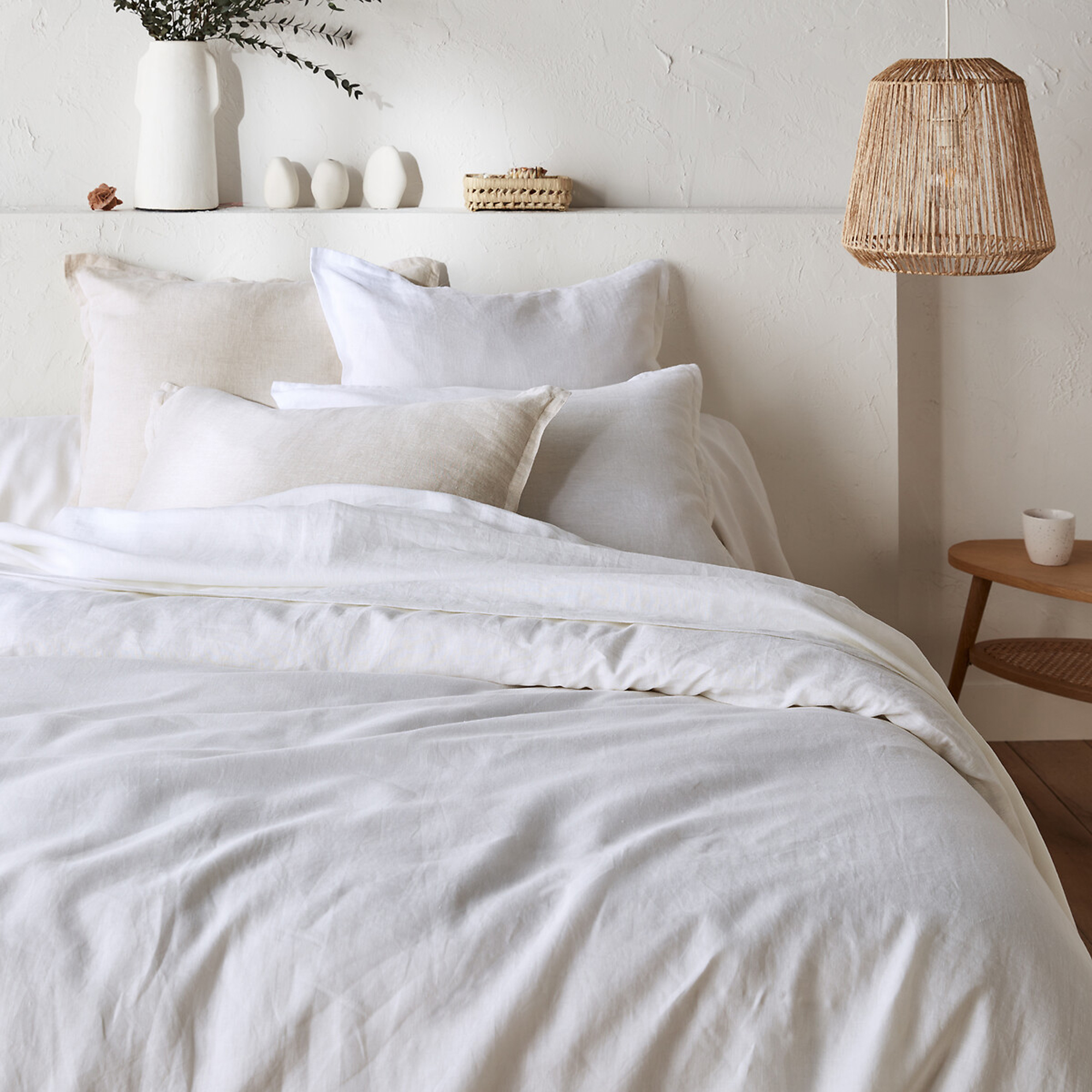
Linen is usually the more expensive option compared to cotton, but if you love a relaxed and understated look, this is the fabric for you. The Linot Washed Linen bedding collection from La Redoute is one of my top recommendations.
So if you're finding it tricky to sleep due to getting too hot at night, I'd definitely recommend checking your bedding's care labels to see what materials are hiding inside your favourite duvet or duvet cover set.
Eliminate the hidden sleep thief that is polyester, and you could get a cooler and more well-rested night's sleep.

Amy is Ideal Home’s Sleep Editor and the Ideal Home Certified Expert on Sleep. She's spent the last four years researching and writing about what makes for the best night’s sleep during the day and testing out sleep products to find the best-in-class by night. So far she’s clocked up over 10,000 hours of pillow, duvet, and mattress testing experience.
Our go-to for all things sleep-related, she’s slept on and under bestselling products from Simba, Emma, Hypnos, Tempur, Silentnight, Panda, and many many more.
As a hot sleeper, Amy is always on the lookout for the most breathable bedding, but she also leads a wider team of testers to ensure our product testing encompasses both hot sleepers, cold sleepers, front sleepers, back sleepers, side sleepers, and everything in-between.